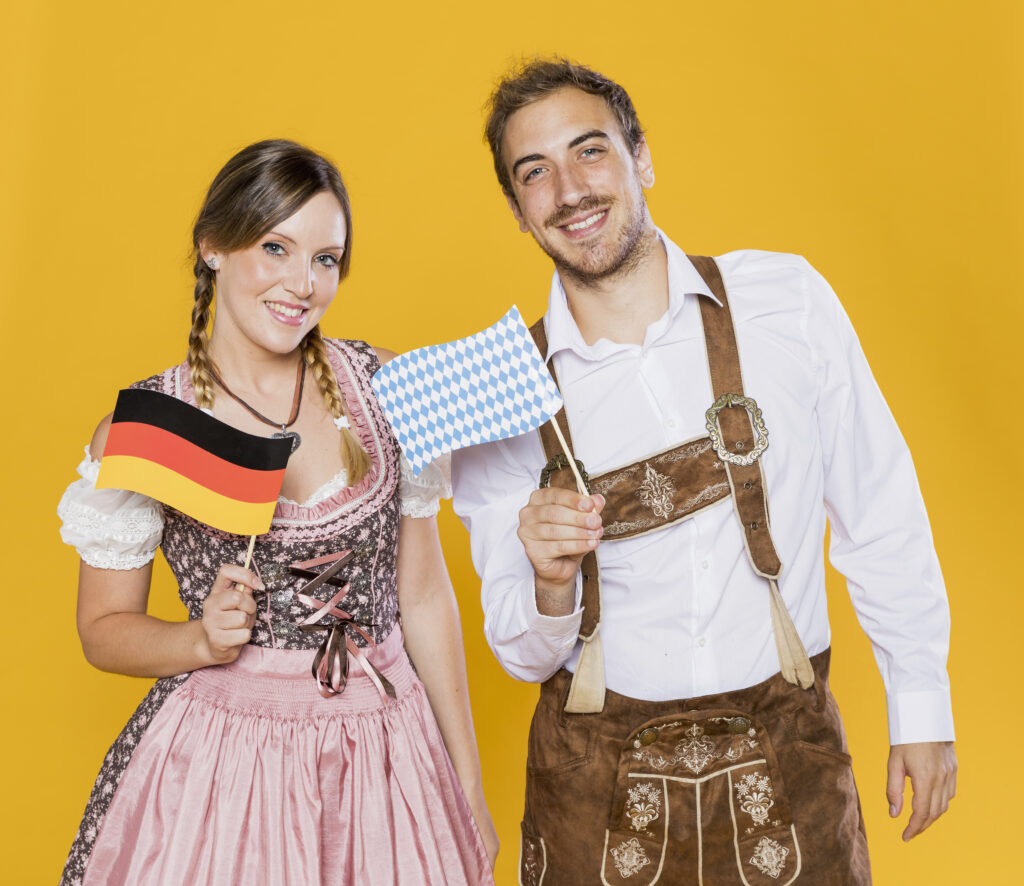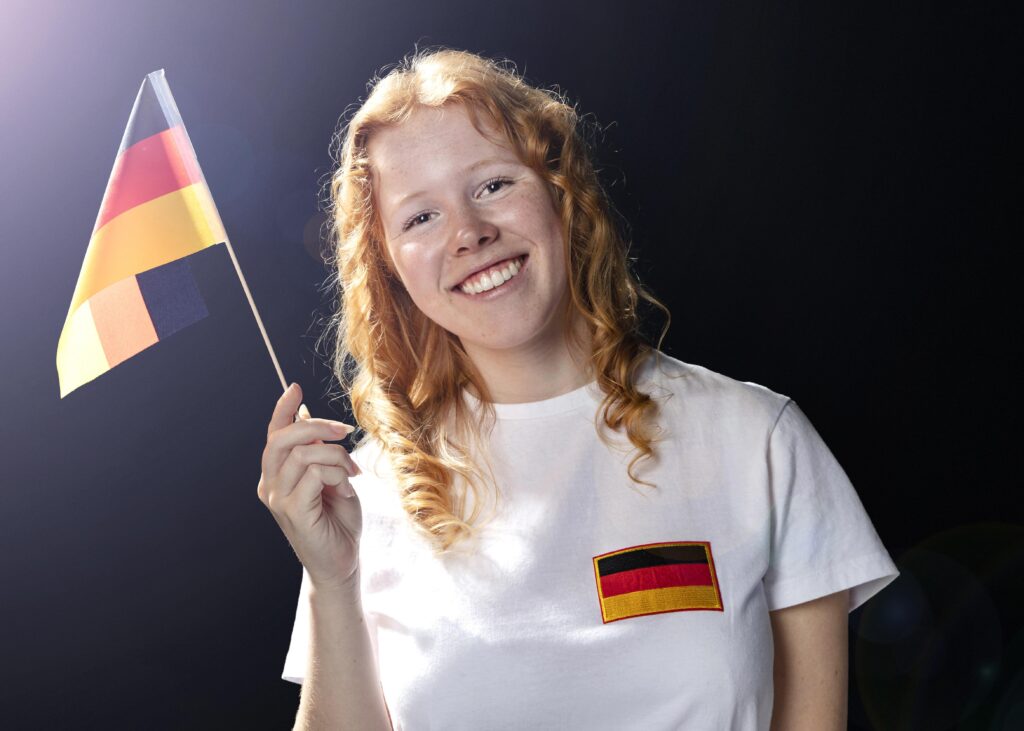Understanding German Slang: A Comprehensive Guide
German Slang: Learning a new language can be both exciting and challenging. While textbooks and formal courses provide a solid foundation, they often don't cover the informal language used in everyday conversations. German, like any other language, has its own set of slang words and phrases that are commonly used by native speakers. Understanding these can significantly enhance your fluency and help you sound more natural.

This comprehensive guide will delve into the world of German slang, exploring its origins, common phrases, and how to use them appropriately.
What is German Slang?
Slang refers to informal, non-standard language often used within specific social groups. It evolves rapidly and can vary significantly across different regions and age groups. In German, slang words and phrases are used to express emotions, convey humor, or simply make the language more colorful and dynamic. Understanding and using slang can make your interactions with native speakers more authentic and engaging.
The Origins of German Slang
German slang has various sources, including:
Youth Culture: Young people often create new words and expressions to differentiate themselves from older generations. These terms frequently become mainstream as they gain popularity.
Regional Dialects: Germany is home to numerous dialects, each with unique slang terms. These regional variations can influence the slang used in everyday conversation.
Media and Pop Culture: Television shows, movies, music, and social media play a significant role in spreading and popularizing slang.
Foreign Languages: Germany’s multicultural society means that many slang terms are borrowed from other languages, particularly English.
Common German Slang Words and Phrases
Let’s explore some popular German slang terms that you might encounter in casual conversations.
1. Alter
Meaning: Dude or mate
Usage: This word is commonly used among friends, similar to the English “dude” or “mate.” It can be used to address someone or express surprise.
Example: “Alter, was geht ab?” (Dude, what’s up?)
2. Krass
Meaning: Awesome or intense
Usage: “Krass” is a versatile slang word that can describe something impressive, shocking, or extreme.
Example: “Das Konzert war echt krass!” (The concert was really awesome!)
3. Geil
Meaning: Cool or sexy
Usage: Originally meaning “horny,” “geil” has evolved to mean cool, awesome, or great in informal contexts.
Example: “Das Auto ist so geil!” (The car is so cool!)
4. Bock haben
Meaning: To feel like doing something
Usage: This phrase is used to express a desire or interest in doing something.
Example: Hast du Lust auf Kino?” (Do you want to go to the movies?)
5. Abhängen
Meaning: To hang out
Usage: Commonly used to describe spending time with friends in a relaxed manner.
Example: “Wir hängen heute Abend bei mir ab.” (We’re hanging out at my place tonight.)
6. Moin
Meaning: Hi or good morning
Usage: Originally from northern Germany, “moin” is a casual greeting used at any time of day.
Example: “Moin, wie geht’s?” (Hi, how’s it going?)
7. Bescheuert
Meaning: Crazy or stupid
Usage: This word is used to describe someone or something that is foolish or ridiculous.
Example: “Das ist doch bescheuert!” (That’s just crazy!)
8. Kumpel
Meaning: Buddy or pal
Usage: A friendly term for a close friend or companion.
Example: “Mein Freund und ich gehen fischen.” (My pal and I are going fishing.)
9. Feierabend
Meaning: End of the workday
Usage: Used to describe the time when work is finished, and relaxation begins.
Example: “Endlich Feierabend!” (Finally, the workday is over!)
10. Quatsch
Meaning: Nonsense
Usage: Used to dismiss something as ridiculous or untrue.
Example: “Das ist doch Quatsch!” (That’s nonsense!)
Regional Slang Variations
Germany’s regional diversity means that slang can vary significantly from one area to another. Here are some examples of regional slang:
Berlin
Späti: Short for “Spätkauf,” meaning a convenience store open late.
Example: “Lass uns zum Späti gehen.” (Let’s go to the late-night store.)
Bavaria
Servus: A casual greeting or farewell.
Example: “Servus, wie geht’s?” (Hi, how are you?)
Hamburg
Digga: Similar to “dude” or “bro,” commonly used among friends.
Example: “Moin, Digga!” (Hi, dude!)
Cologne
Jeck: Refers to someone who is a bit crazy or a party enthusiast, especially during Carnival.
Example: “Der Typ ist ein echter Jeck.” (That guy is a real party enthusiast.)
How to Use German Slang Appropriately
Using slang appropriately requires understanding the context and audience. Here are some tips to help you navigate German slang:
Know Your Audience: Slang is typically used in informal settings among friends or peers. Avoid using slang in formal situations or with people you don’t know well.
Listen and Learn: Spend time listening to native speakers and paying attention to how they use slang. This can help you understand the nuances and appropriate contexts for each term.
Start Slow: Introduce slang gradually into your vocabulary. Start with a few commonly used words and phrases, and expand your usage as you become more comfortable.
Practice with Friends: Practice using slang with friends who are native speakers or fellow learners. They can provide feedback and help you use the terms correctly.
Stay Updated: Slang evolves rapidly, so it’s important to stay updated with current trends. Follow German media, social networks, and pop culture to keep your slang knowledge fresh.
The Role of Media in Spreading Slang
Media plays a significant role in popularizing slang. Television shows, movies, music, and social media platforms introduce and spread new slang terms. For example, German rap and hip-hop culture have contributed numerous slang words to the mainstream language. By engaging with German media, you can learn and adopt contemporary slang expressions.

Examples from Media
Berlin Tag & Nacht: This popular reality TV show set in Berlin uses a lot of local slang, providing a great resource for learning how slang is used in everyday conversation.
German Rap Music: Artists like Capital Bra and Shirin David often incorporate slang into their lyrics, reflecting the language of urban youth culture.
The Influence of English on German Slang
English has had a significant impact on German slang, especially among younger generations. Many English words and phrases are adopted directly into German, often with slight modifications in pronunciation or usage.
Common English Loanwords
Chillen: To relax or hang out (from “chill”).
Example: “Lass uns chillen.” (Let’s relax.)
Cool: Used in the same way as in English, to describe something positive or impressive.
Example: “Das ist echt cool!” (That’s really cool!)
Jobben: To work, especially in a temporary or part-time job (from “job”).
Example: “Ich jobbe neben dem Studium.” (I work part-time while studying.)
Downloaden: To download.
Example: “Ich muss die Datei downloaden.” (I need to download the file.)
The Evolution of German Slang
Modern Trends
Cringe: Adopted from English, used to describe something awkward or embarrassing.
Example: “Das war so peinlich.” (That was so embarrassing.)
Conclusion
Understanding and using German slang can greatly enhance your fluency and make your interactions with native speakers more authentic and enjoyable. By familiarizing yourself with common slang words and phrases, practicing their use in appropriate contexts, and staying updated with current trends, you can navigate the world of German slang with confidence.
Whether you’re planning a trip to Germany, studying the language, or simply interested in broadening your linguistic skills, mastering German slang is a rewarding and enriching experience. So, next time you’re in a casual conversation with a German speaker, don’t hesitate to throw in a “krass” or “Alter” – you’ll sound more natural and connected.

German slang refers to informal language expressions used in everyday conversations among native speakers. Learning slang is crucial for understanding casual dialogue, connecting with locals on a deeper level, and sounding more natural when speaking German.
German slang often deviates from standard grammar and vocabulary, incorporating informal words, phrases, and expressions specific to certain regions, age groups, or social circles. While standard German follows formal rules, slang adds flair and authenticity to informal communication.
Yes, German slang can vary significantly across different regions of Germany, as well as in Austria, Switzerland, and other German-speaking countries. Each region has its own unique slang terms and expressions influenced by local dialects, culture, and historical factors.
To incorporate German slang into your language skills, immerse yourself in German media, such as movies, TV shows, music, and social media. Pay attention to how native speakers use slang in various contexts and practice using slang expressions with language partners or tutors.
While German slang is acceptable in casual conversations and informal settings, it’s generally not appropriate to use slang in formal or professional contexts, such as job interviews, academic writing, or official correspondence. It’s essential to know when and where to use slang appropriately to avoid misunderstandings.